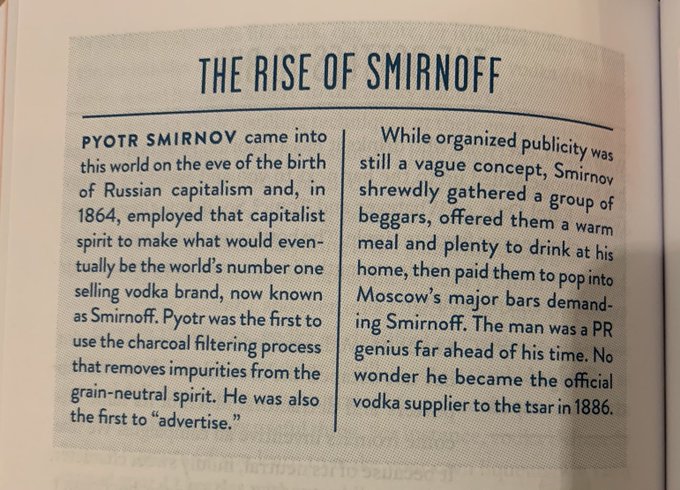Yet marketers very rarely acknowledge this distinction when debating the role of the brand – and it pays little attention to the job of being assuredly not crap – even though I suggest it is by far the more valuable economic role that brands play: not to be a promise of ultimate superiority but a cast iron assurance of pretty dependable non-shitness. The Fina ad is one good example. Even better is that great CDP ad for Smirnoff: “why waste money on real lemons”, which I can’t find, or the Volkswagen promise of reliability. But overall this proposition of “loss avoidance” is rare – most ads seek to boast a lot more than they reassure. Yet when you are handing over £1,000 to buy that flat screen TV, how much of your brain is worried about whether it is the best TV you can buy for £1,000, versus the part of the brain thinking “I hope this TV isn’t a crock of shite?” I’d put the ratio at about 1:2.
Because we all work in the field, marketers and advertising people are by temperament maximisers when it comes to brands. They use the fine distinctions between them to delineate themselves and to highlight their individuality.
Excerpt from: Rory Sutherland: The Wiki Man by Rory Sutherland

